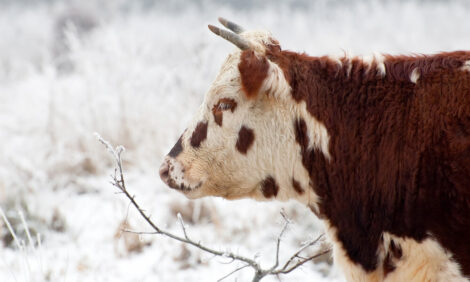



Tests Show Limited Horsemeat in Beef Products
UK - The UK Food Standards Agency's first set of industry results from beef products that have been tested for the presence of horse DNA have showne that 29 samples, relating to seven products, were positive for the presence of undeclared horse meat at or above a level of one per cent.The FSA has reported a total of 2501 results with 2472 of these (almost 99per cent) negative for the presence of horse DNA at or above the level of one per cent. At least 950 tests are still in progress.
The 29 positive results all relate to seven products that have already been reported and where the food business and the FSA have already taken appropriate action to remove the products from sale and notify consumers.
The FSA has been working with trade bodies in the food industry to collate these results as quickly as possible, to get an accurate picture of the testing being carried out across the UK food chain.
This testing follows the statement by FSA Chief Executive Catherine Brown earlier in the month, where she announced that the food industry had been instructed to conduct authenticity tests on their composite beef products, such as burgers, lasagnes and meatballs, in light of the recent horse meat issue.
The samples were carried out on both raw ingredients and final products, and taken from a range of manufacturers, catering suppliers, wholesalers, producers and retailers across the UK.
Where products have been found to contain horse DNA, they have been tested for the presence of veterinary drug phenylbutazone, known as bute. All of the tests for bute have come back negative.
Announcing the results, FSA Chief Executive Catherine Brown said: "Since this incident began on 16 January, businesses have been carrying out a large number of tests. We said that industry should share those results with us, and the public, and we asked for the first results to be with us today. The results so far date from when businesses began their testing four weeks ago. They include results which were received by companies up to around 10am this morning.
"It’s encouraging that we have received so many results from industry so quickly, which reaffirms their commitment to working with us to address the serious issue of consumer confidence in the UK food supply.
"More important for consumers, it shows that in the vast majority of cases the results so far are showing that no horse DNA is present in the foods tested. But this is still far from the full picture and we expect industry to continue to supply us with regular updates on their testing regime.
"We’ve asked industry to test for horse DNA down to a level of one per cent. There are two reasons for this. First, that’s a pragmatic level above which we think any contamination would be due to either gross incompetence or deliberate fraud; it’s not going to be accidental. Second, some laboratories can only test accurately down to a level of one per cent.
"But that does not mean that we’re not concerned with, or that we accept, levels below 1%. In terms of faith groups, there remains a significant issue about trace levels of other species below one per cent. So we have a separate programme of work under way with Defra to look at the issues around that, too.
"Further results are expected over the coming weeks."
Environment secretary Own Paterson said: "It's wholly unacceptable that if people buy products marked beef, they turn out to be horsemeat. That's why it was so important to undertake this intensive testing activity to gain a meaningful picture.
"My concern is for consumers. The news for them today is that the vast majority of products tested are completely clear of horse DNA.
"Food businesses now have a lot of work to do. They need to move quickly to complete these tests and they need to show their customers they've taken the right steps to make sure this doesn't happen again."
Mr Paterson was meeting retailers and industry leaders this week to further discuss measures to ensure that meat products are fully traceable and labelling is accurate.
Further Reading
| - | Go to our previous news item on this story by clicking here. |
TheCattleSite News Desk


